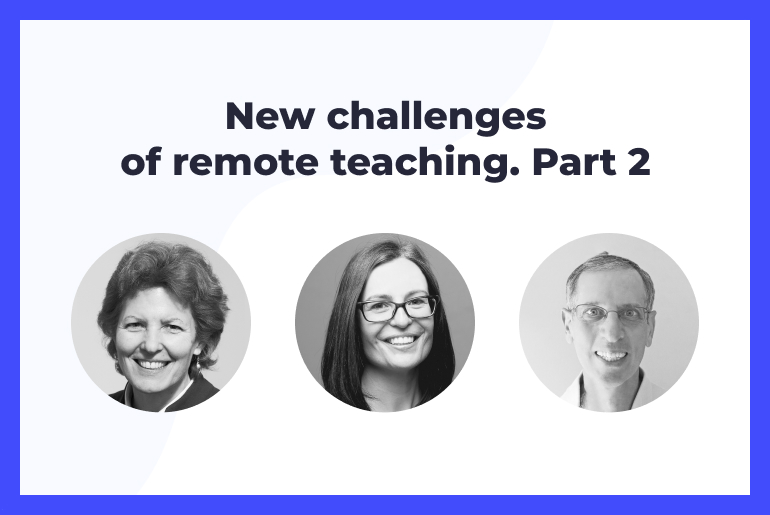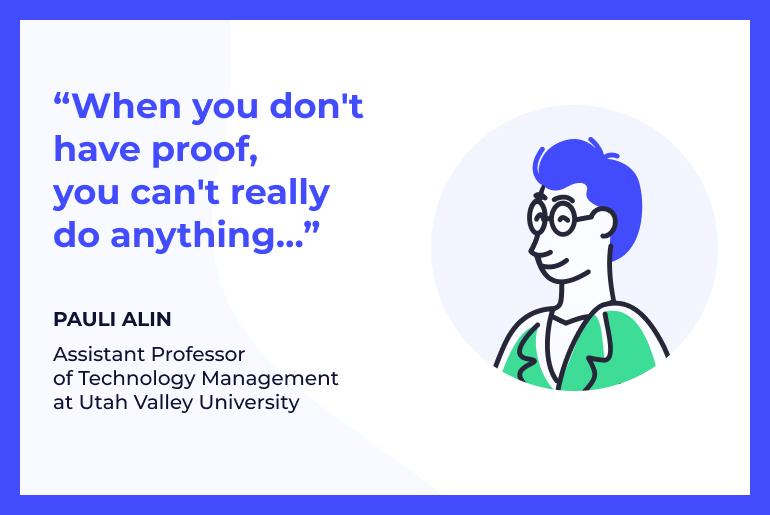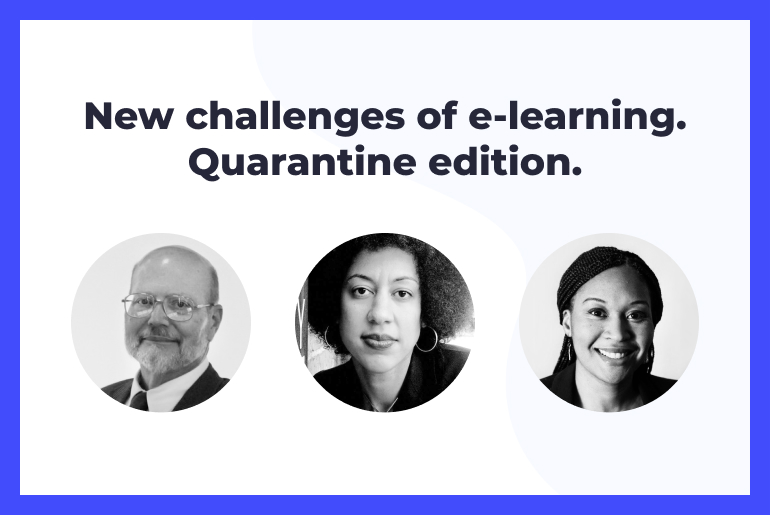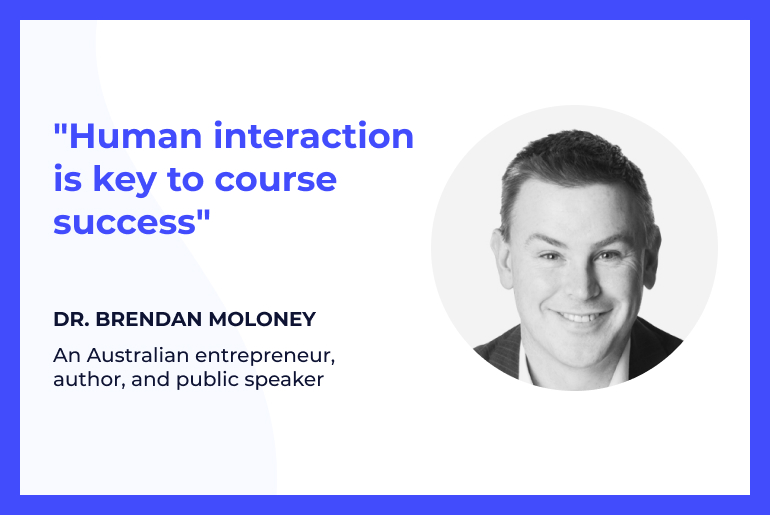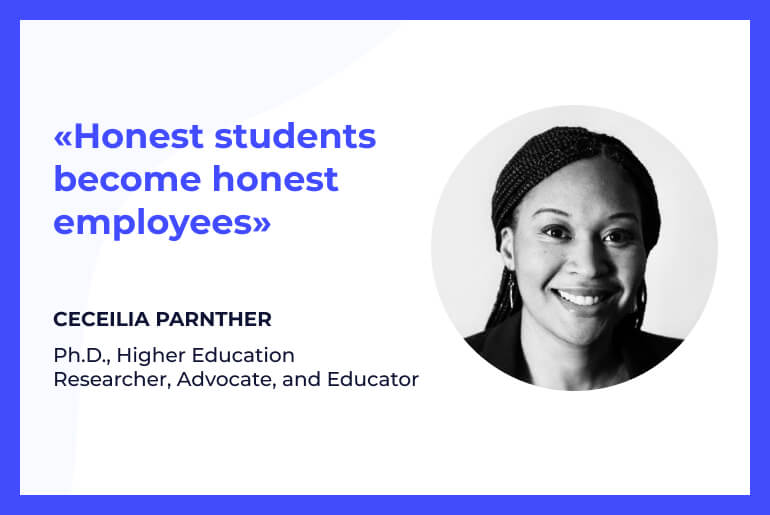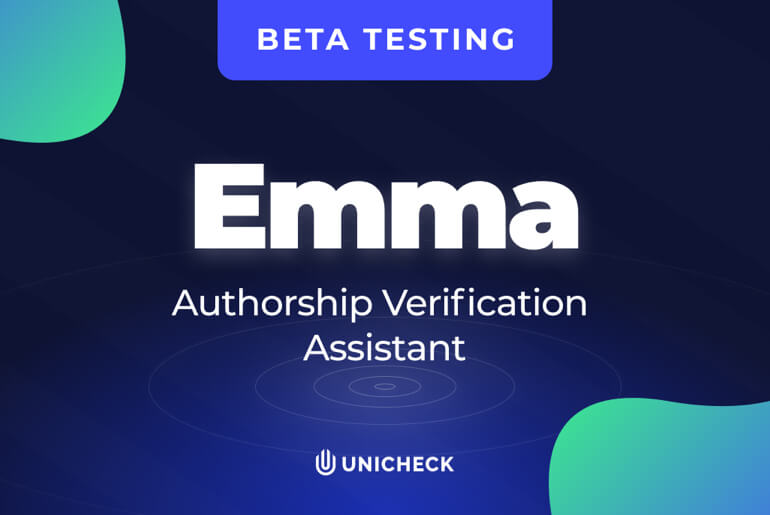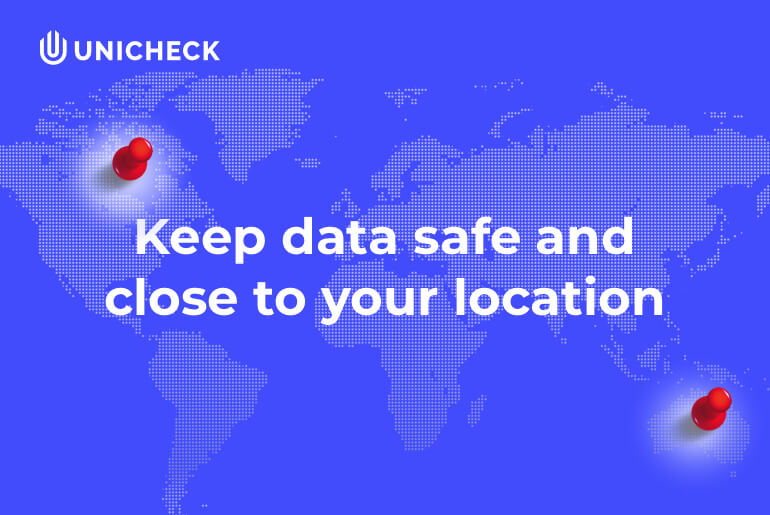To help you forge through the uncharted territories of remote learning more easily, we interviewed the leading experts in various domains of education. They are sharing their stories caused by this abrupt switch to 100% online in education to let you know we’re in this together. Also, they’ll be sharing some tactics and tools that have helped them during the days of social isolation and remote teaching.
What does it really take to detect contract cheating if the text turns to be 100% original and goes unnoticed by plagiarism checkers? Apart from AI-driven assistants like Emma (and thoroughly studying the individual’s writing style), who or what else can tackle these issues?
We’ve connected with Pauli Alin, Assistant Professor of Technology Management at Utah Valley University, to find out how contract cheating instances are now being discovered and addressed.
It seems like the trickiest part so far has been to present a reliable proof without discrediting students’ reputation and efforts. Here’s what we’ve discovered.
Recently, the coronavirus pandemic caused all educational institutions across the globe to shift toward digital learning. This situation made the Unicheck team think about how we can help educators handle these tough times.
E-learning has been around for quite a while, but not all the academic institutions succeeded in adopting new educational models.
We’ve talked over this issue and a lot more hot topics with Dr. Brendan Moloney, an Australian entrepreneur, author, and public speaker.
As an academic by background, Brendan used to work at the University of Melbourne and completed his PhD there as well. He had been observing big changes in the university sector and put together a team of fellow PhDs from around Australia and the world to create Darlo.
A novel coronavirus pandemic continues to cause a stir. COVID-19 cases are said to be spreading like wildfire and will reach a global peak before everything starts to slow down.
According to the official statement made by the World Health Organization, the pandemic outside China has grown 13-fold, which is a clear sign that academic institutions across the world will have to suspend studies or switch to online instruction.
Meanwhile, dozens of colleges and universities in the US, as well as the 27 EU countries and the UK, have chosen to close in-person classes until late March or early April.
Interestingly enough, we’ve been gathering student records for over 200 years now in the United States schools. This evolution has been impressive to observe, given that it started as a practice to keep general records and attendance for each student.
This time, we’ve been extremely lucky to connect with Dr. Ceceilia Parnther, Assistant Professor in the department of administrative and instructional leadership at St. John’s University. As a higher education researcher and mentor, Ceceilia has accumulated a valuable experience in growing academic integrity, advising on students’ success and retention, and effective student mentorship.
We’ve asked her a few burning questions: how course design may help minimize cheating attempts; what motivates students to show their authentic voices and independent writing; how one can keep the class motivation high enough to prevent contract cheating from taking place, and a lot more. Proceed to get the answers.
According to the BBC news, “one in seven is paying for university essays.” To combat the booming economy of essay mills, quicker collective action must be taken to raise the standards for academic integrity, which the International Center for Academic Integrity (ICAI) is highly committed to.
Founded back in 1992, ICAI has been helping academic institutions increase integrity, foster communication, evaluate resources, and share advice on how to establish an open and trusting academic community.
The Unicheck team reached out to Teresa Fishman, PhD in Rhetoric and Composition, educator, consultant, and the former Director of ICAI, and asked her about how universities and colleges are facilitating students’ integrity, what teachers can do to discourage cheating, how academic integrity can be achieved in e-learning, and what can inspire students to adopt the mindset of a critical thinker.
Read on to see what she had to say.
We are happy to invite educational institutions to join a beta testing of the Unicheck’s revolutionary contract cheating detection solution powered by AI algorithms.
Going into the future, data privacy will be a major concern for many of the K-12 and higher education institutions. We’ve touched on the issue in this post, and the 2019 Data Breach Investigations Report has revealed the data collected from 86 countries. As it turned out, education remains almost as vulnerable as healthcare, with 99 of 382 registered incidents that resulted in the data disclosure.
The most popular attacks included web app errors, phishing emails, data privacy infringement, and ransomware.

